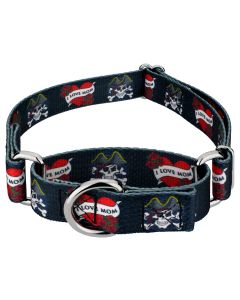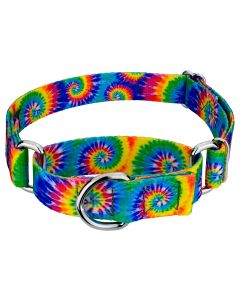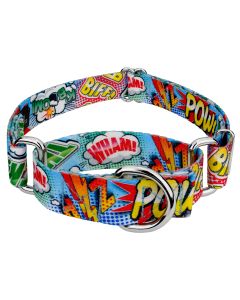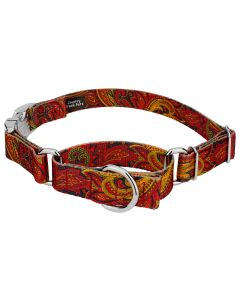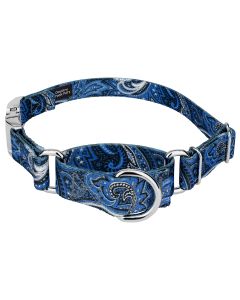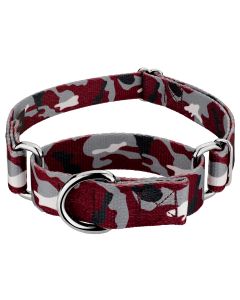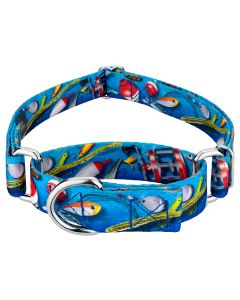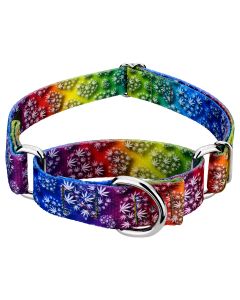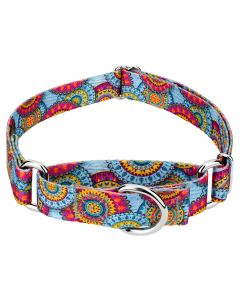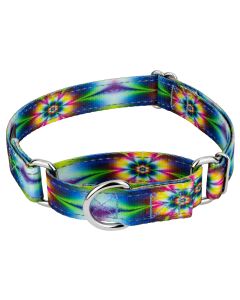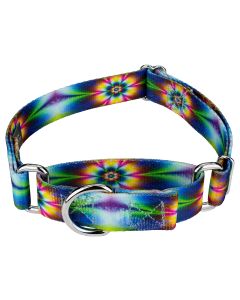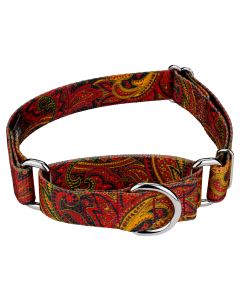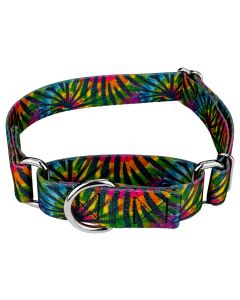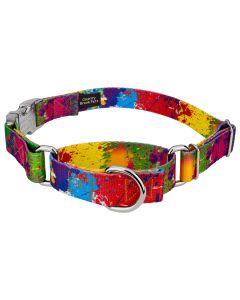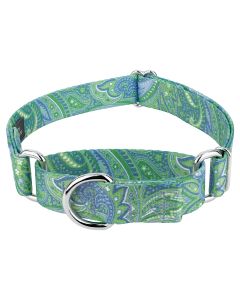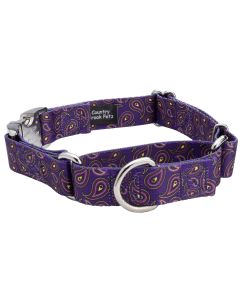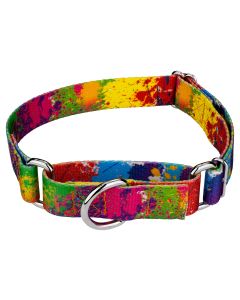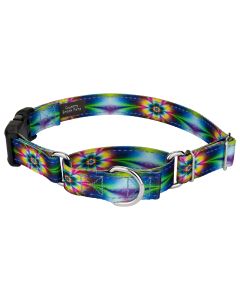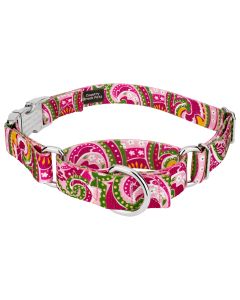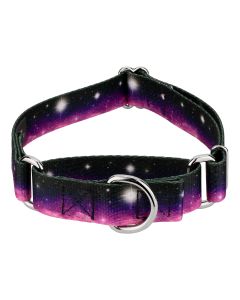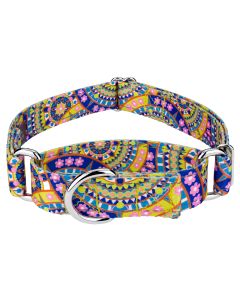Martingales
What Are Martingale Dog Collars?
A martingale dog collar is a type of dog collar designed to give more control and prevent dogs from slipping out of their collars. It is often used for dogs with narrow heads (like Greyhounds and Whippets) or dogs that tend to pull or back out of standard collars. A Martingale collar is made from two loops. The larger loop goes around the dog's neck, while the smaller loop is attached to a leash.
Key Benefits of Martingale Dog Collars:
- A Martingale prevents dogs from slipping out of collars.
- It offers more control without causing harm or choking.
- It is especially useful for training or for breeds with slim necks and heads.
How Does It Work?
When a dog pulls on the leash, the smaller control loop tightens, reducing the size of the main loop around the neck. This tightening discourages pulling while preventing the collar from slipping off. When the dog stops pulling, the collar loosens to its original size.




Are Martingale Collars Safe?
Yes, martingale collars are generally safe when used correctly. They are designed to provide gentle control without causing harm, making them a popular choice for training and everyday use. However, there are important considerations to ensure safety:
Why Martingale Collars Are Safe:
- Limited Slip: The collar only tightens to a certain point, preventing excessive pressure on the dog's neck and avoiding choking or injury.
- Control Without Escaping: They are especially effective for dogs with narrow heads or those prone to slipping out of regular collars, providing security without causing discomfort.
- Gentler Than Choke Collars: Unlike choke chains, martingale collars are designed for mild correction, not punishment.
Tips for Safe Use:
- Proper Fit: Adjust the collar so that it fits snugly but not too tight when pulled. It should only tighten enough to prevent slipping off, not to restrict breathing or cause pain.
- Supervised Use: Martingale collars are intended for use during walks or training sessions. They should not be left on unsupervised dogs, as the tightening mechanism could pose a hazard if it gets caught on something.
- Correct Usage: Use gentle pressure and avoid pulling excessively on the leash. The collar is meant to provide guidance, not to punish the dog.
When to Avoid:
- Unattended Dogs: Never leave a martingale collar on a dog who is not being actively supervised.
- Health Concerns: Dogs with neck or respiratory issues may not be suitable candidates for this type of collar. Consult a veterinarian if unsure.
Can Martingale Collars Help With Dog Training?
Martingale collars are commonly used as a training tool, providing a gentle reminder to dogs not to pull without causing excessive discomfort. Their limited-slip design ensures a safer and more effective way to guide and correct behavior during training sessions.
Tips for Training Your Dog With a Martingale Collar:
- Gradual Introduction: Start by allowing your dog to wear the martingale collar for short periods to help them become familiar with it. Gradually increase the time they wear it before using it during training sessions or walks.
- Positive Reinforcement: Pair the martingale collar with positive reinforcement techniques. Reward your dog for displaying good behavior to promote compliance and discourage pulling.
- Consistency: Maintain a consistent approach in your training. Regularly use the martingale collar during walks and training sessions to reinforce the desired behavior and help your dog learn effectively.
- Stay Loose: Keep the leash loose during training to allow the martingale collar to function properly. Apply tension only when your dog pulls to provide effective feedback.
Are Martingale Collars Choke Collars?
No, martingale collars are not "choke collars." Unlike old-fashioned check chains or slip leads, they are designed to provide gentle correction without causing harm.
Are Martingale Collars Cruel?
Not at all! When properly fitted, martingale collars correct without causing discomfort, allowing dogs to learn not to pull without relying on a pain response.




